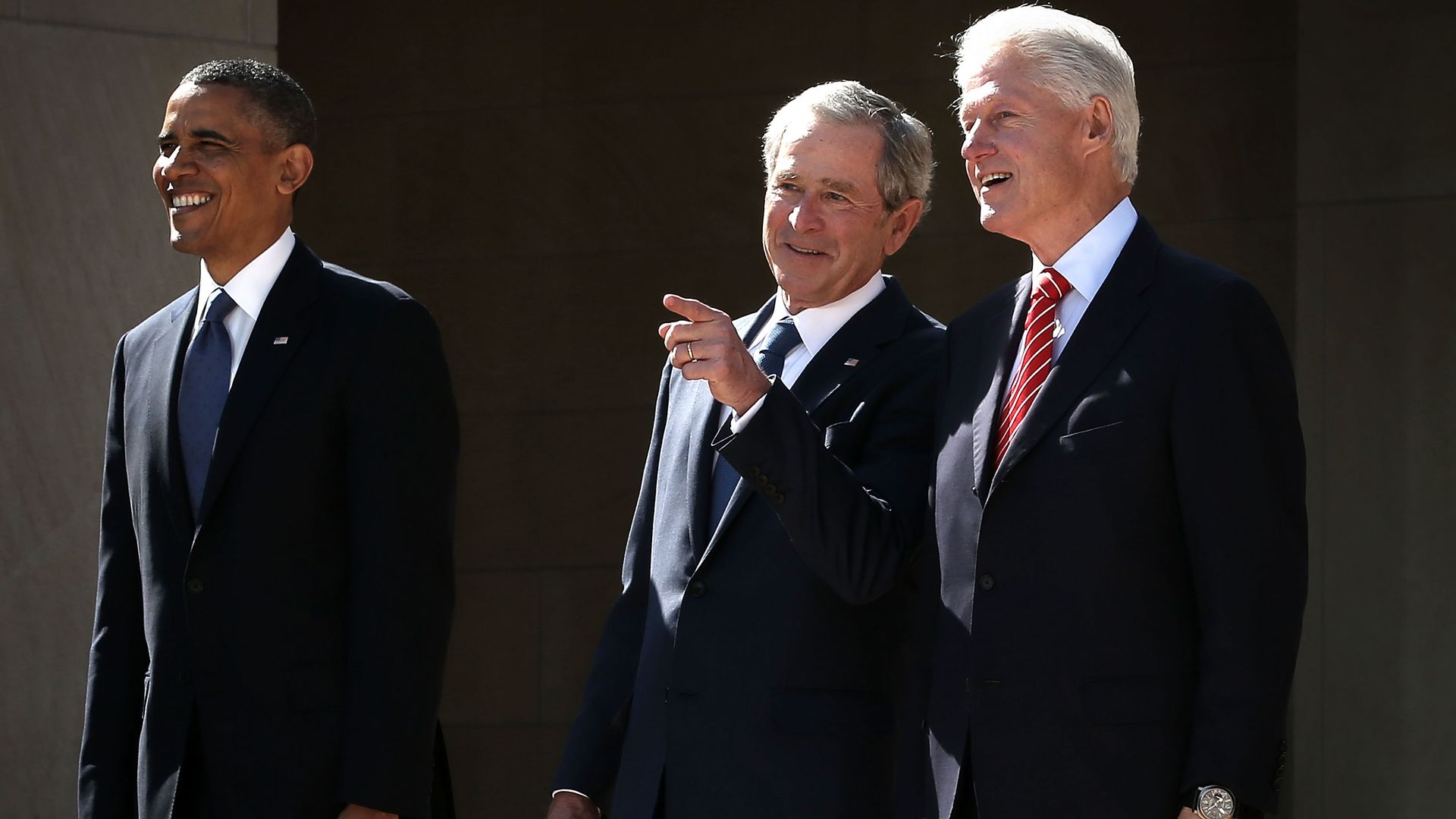Sep 14, 2021 - Politics & Policy
Obama, Bush, Clinton join aid effort welcoming Afghan refugees to U.S.
Add Axios as your preferred source to
see more of our stories on Google.

Then-President Obama (left), and former presidents George W. Bush and Bill Clinton attend the opening ceremony of the George W. Bush Presidential Center in April 2013 in Dallas. Photo: Alex Wong/Getty Images
